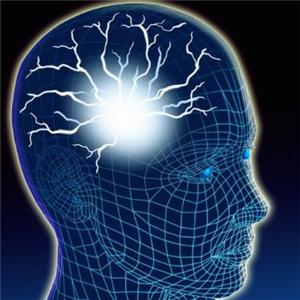Under Construction: Your Child’s Brain

Babies are born with their brains literally still under construction. While they have the majority of the building materials already on site the construction of the elegant and complex pathways of the brain are still very much in process. Babies are born with roughly 100 billion neurons already in place. Most of these neurons have not been ‘connected’ meaning they have yet to form into the useful pathways that enable vision or language. These connections are formed over the first ten years of a child’s life. More importantly, the brain develops in predictable stages based on the chemical changes occurring in the brain at that time. Because these stages are predictable scientists and developmental psychologists have been able to identify “prime times” for specific development activity and learning.
A recent publication by Judith Graham and Leslie A. Forstadt of the University of Maine detailed these prime times, what’s happening, and what a parent can do to support. Here is brief summary of their findings:
Helping your child’s vision
– From birth to age 6 a child’s vision is developing. There is a peak in development between ages 1 and 3.
– Babies, when born, can see clearly objects that are 8-10 inches away from their face. Over time they begin to develop greater depth perception.
– Eye exams are the biggest help a parent can give. If problems go uncorrected the neural pathways could lose functionality.
Helping your child’s feelings
– Emotions are a complex development process lasting through about age 10.
– The first emotions the brain builds are calm and distress at about 2 months these emotions begin to develop into more layered feelings.
– You can help nurture your baby’s emotional development by providing a structured and supportive environment. Simple things like expressing joy, providing routine, and positive discipline help your child develop robust and healthy emotions.
Helping your child’s language
– Language skills begin developing at birth and grow through age 7. Vocabulary specific development starts at age two and continues into adulthood
– The first 6 years are critical for brain development to understand, recognize, reproduce language.
– Talking to your baby is the most important thing you can do. Continually share your language and vocabulary with your child. As a baby the singsong talk is especially helpful in helping babies learn new words.
Helping your child’s motor skills
– A baby’s motor skill development starts with the large muscle groups and refines to smaller muscles from there.
– The basic motor skills (arms, legs, back, etc) start at birth, with fine motor development starting around 6 months old.
– Motor skills are refined primarily over the first 4 years of a child’s development
– You can help your baby’s motor skill development by having age and stage appropriate activities available. For example drawing with crayons or painting helps with fine motor skills while having reaching for objects helps large motor and hand eye coordination in younger babies.
Your child is equipped from the day she or he was born with all the tools needed to develop and grow into an amazing person. Understanding how your child develops will help you provide the best environment possible to stimulate those 100 billion neurons.














Leave reply